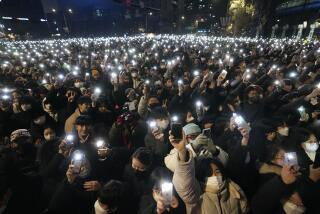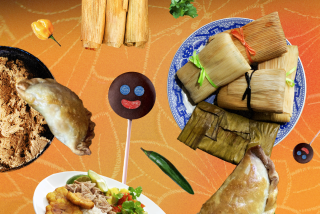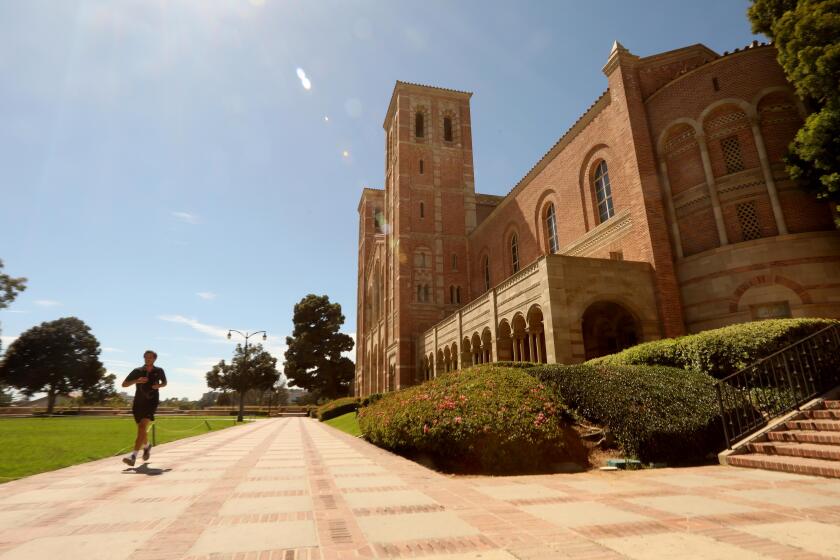For Cheery Gathering, Keep Family Busy, Sharing
Your cousin Bob has vowed that if Uncle Eddie shows up this year and tries to sell him more life insurance, Eddie will never live to see New Yearâs.
Your nephew Joey (he calls himself Mangler) is taking karate and canât wait to show everyone, Aunt Giselle is into the cooking sherry again, Mom and Dad have turned the martyrdom dial up to high because theyâd really planned to be in Hawaii, your sister Moonbeam has become a vegetarian and is lecturing everyone on the evils of turkey flesh, your wifeâs sisterâs twins have just poured brown gravy into the VCR, your own children are afraid to come out from under the bed, and the creamed corn just exploded.
The only silver lining you can find in all this is that Norman Rockwell didnât live to see it.
Short of calling 911, how do you cope with the holiday family gathering that is a cinch to be far quirkier than the warm, loving, tolerant, traditional evening over at the Cratchits? What do you do when youâre faced with the real world of modern family peccadilloes, jealousies, rivalries, squeamishness, avoidance, unfriendliness, nit-picking, discomfort and anxiety that sometimes go with the season?
For starters, say Orange County psychologists, distract âem.
âItâs important to try to inject a little humor into the situation,â said Tustin psychologist Alan Liberman, a marriage, family and child counselor. âI think anything that can be done that might be of a creative nature where you can provide humor, or have more than one activity going at a time, would help. The guests might bring white elephant gifts to exchange to warm things up, or you might even produce a little newsletter to catch people up on what has occurred during the year with different family members.
âYou can assign people to tasks during the gathering, too. Make someone responsible for games and activities, or for bringing different parts of the meal. That way people feel a part of things and donât feel so isolated. And, it takes the burden off the people giving the party.â
Jody Dean, a psychologist with practices in Mission Viejo and Fullerton, said activities such as movies or a visit to the park âwill direct the attention away from conflict and onto the movie, or the kids playing, onto something that is pretty neutral and an undemanding situation. Sometimes adding a few people, friends for instance, can actually enhance things in that those people will give the guests something to focus on besides themselves.â
It is that self-focus that often is the culprit when family gatherings get tense, said Barbara Kreedman, a clinical psychologist with a practice in Santa Ana.
âPeople have a problem with looking for approval during the holidays,â she said, âand one of the psychological issues that theyâre dealing with is their need to separate themselves from the people that theyâre close to and at the same time wanting love from those people. Theyâre wanting to be who they are, but theyâre looking for approval, too. Theyâre looking for people who are like them or who feel like them, and sometimes the family members cannot provide that. Thereâs what is called a narcissistic sameness that doesnât always exist among family members. Thatâs where injuries and disappointments take place.â
The holiday season, Kreedman said, âincreases the need for that narcissistic sameness. You look to your family at this time of year, and thereâs a need for family unity. Ideally, people have to realize that approval and validation canât always be there. Coming to grips with the limitations found in other family members will release the injury and depression that exists when people arenât getting their needs met. Thatâs going into adulthood.â
It is possible, Liberman said, to defuse a family confrontation before it begins.
âItâs probably a good idea when you invite everybody to let them know in a letter who is coming (to the party) so they can have a choice of whether to come,â he said. âIf people know theyâre going to be going to a place and someone is going to be there that they do not get along with, and certain activities are going to be going on, they can participate in one activity while the other person is doing something else. These gatherings are not the places to work out bad-blood situations.â
They also arenât the time to expect children to be on their best behavior. Children can become confused by all the activity, and bewildered by the behavior of adults.
âItâs harder for children to look to themselves and say, âGee, Momâs cooking all day and sheâs upset, but that has nothing to do with me. It would be wonderful if adults could convey that idea to a child. But if the adults are angry, children personalize that and sense that their parents have changed. They say to themselves, âWhat have I done? Am I bad today?â â
Itâs a mistake to expect resolutions to family conflicts during gatherings, Dean said, even during the season of good will toward men.
âEspecially around the holidays, when everyoneâs on edge, itâs best that people not have expectations that theyâll have Hallmark-greeting-card family gatherings,â Dean said.
âFamilies donât work that way. Even though itâs Christmas Day, itâs possible for it to turn out to be a pretty hellish afternoon. People shouldnât come into one of these gatherings with an agenda on their minds. Youâre not going to solve a 10-year-old problem with Mom and Dad.â
More to Read
Sign up for Essential California
The most important California stories and recommendations in your inbox every morning.
You may occasionally receive promotional content from the Los Angeles Times.










